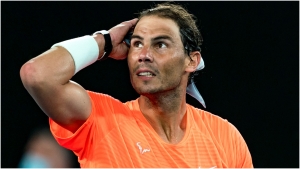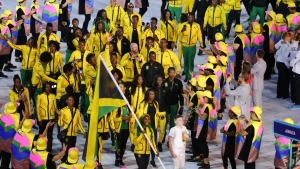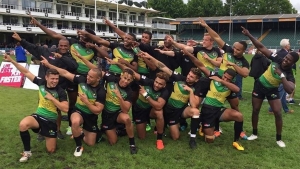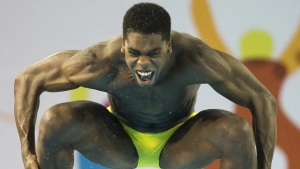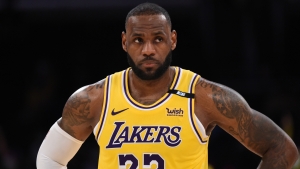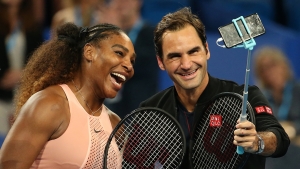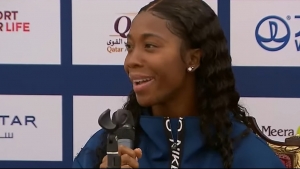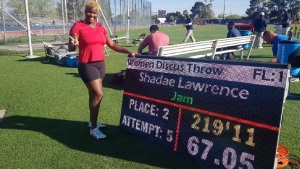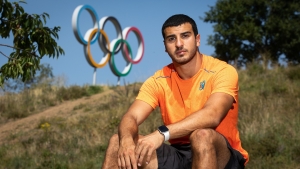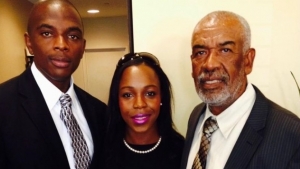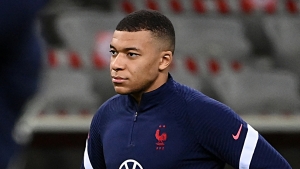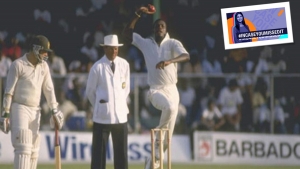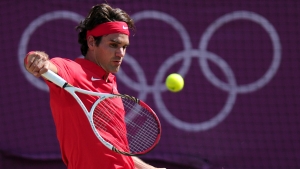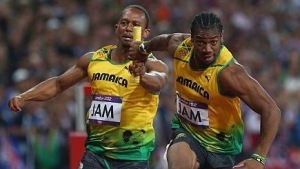Roland Garros, Wimbledon, the US Open, the Olympic Games, Indian Wells: this year's tennis calendar is not lacking in red-ringed dates.
But August 8 and September 26 are majorly notable in that they will mark the 40th birthdays of Roger Federer and Serena Williams, respectively.
Federer's birthday falls on the final day of the Tokyo Olympics, while Williams reaches the same landmark a fortnight after the US Open women's singles final.
Both have kept their future plans quiet, but it would come as no major surprise if one, or both, were to retire by the end of the year.
Fellow grand slam greats Venus Williams, Andy Murray and Kim Clijsters may also be a matter of months away from bowing out of the professional ranks.
Will life after tennis begin at 40 for Williams and Federer, or could the superstar pair return to the French Open in 2022?
Stats Perform looked at the players who may be considering their futures, what they still want to achieve, and their prospects of attaining those remaining goals.
Federer's final fling?
Ahead of his 30th, Federer was asked what it felt like to hit such a milestone.
"Birthdays happen. They're part of life," Federer said. "I'm happy I'm getting older. I'd rather be 30 than 20, to be honest. To me it's a nice time."
A decade on, Federer may be similarly equanimous about hitting 40. Family life is good, he'll never need to borrow a dollar, and he has advanced from 16 grand slams to 20.
But the knees would sooner be 30 than 40, and Federer, remarkable sportsman though he is, is coming to the end of the line in his tennis career. It will hurt the Fedfans to think so, but all the evidence points to it. We are probably witnessing a lap of honour.
Having won Roland Garros only once at his peak, we can surely forget the prospect of any heroics in Paris. Federer needs to win a few rounds though, in order to be sharp and battle-hardened for the grass season. Wimbledon, the Olympics and the US Open are events where you might give a fit Federer a chance, even at such a veteran age, but he has played only three matches since the 2020 Australian Open, losing two of those.
Target: Federer has never settled for second best, so he will want to be a tournament winner again, no doubt about it. The hunger does not go away after 20 grand slams, but it can be more difficult to sate.
Prospects: Slim, but not forlorn. So much of Federer's game is about feel and ease of movement, and assuming that knee surgery last year means the body is in good shape again, he should be able to call on those staples of his game. Key missing ingredients are the confidence that comes with beating rivals, and match fitness. Federer's 1,243 wins and 103 singles titles count for an awful lot still, and there could be one final hurrah before the Swiss great signs off.
Serena still one short of Court
From precocious teenager to queen of the tour, Williams' tennis journey has been a 25-year odyssey and there is nobody more driven to succeed than the great American.
It must be an intense frustration that she remains rooted on 23 grand slams, one short of Margaret Court's record haul, and the four grand slam final losses she has suffered while on that mark have been cruel blows.
As her 40th birthday approaches, it would not be a surprise if Williams reached that target, but what once felt inevitable now only has the air of being a possibility. She is becoming less of a factor when looking at title favourites, but Williams is still capable of beating top players, still a threat wherever she shows up.
Target: The 24th slam remains the must-have for Williams. Tour titles feel like an irrelevance, and Williams has won just one of those since January 2017, her calendar built around peaking for the majors since returning from giving birth to daughter Olympia.
Prospects: Beating Aryna Sabalenka and Simona Halep at the Australian Open demonstrated Williams still has the game for the big stage, and a semi-final defeat to Naomi Osaka, to whom she has now lost in three of four encounters, should not particularly detract from that. Williams is playing on clay primarily to get in great shape for grass, because Wimbledon, where she plays the surface with a command that others can only envy, is where that elusive 24th slam looks most likely to come.
Amid losing streak, tennis waits to learn what Venus infers
Some suspect that the Williams sisters, having arrived on tour together, might bow out at the same time too. Venus has won 49 WTA Tour-level titles but has recently slipped out of the top 100 for the first time since early 2012. Ahead of turning 41 in June, it is hard to see her being a reliable force again.
The seven-time slam winner will be needing wildcards for the grand slams unless the wins start to flow, and naturally she should have no trouble getting those backdoor tournament entries, but for a player of her stature, losing in the first round most weeks can offer little satisfaction.
It is 21 years since Venus' greatest tennis summer, when she won the Wimbledon, Stanford, San Diego, New Haven, US Open and Olympics singles titles, along with doubles glory alongside Serena at the Olympics and Wimbledon.
Nevertheless, she said at the Australian Open in February: "I'm trying to get better every day. I think that no matter what happens to you in life, you always hold your head up high, you give a hundred million percent. That's what I do every single day. That's something that I can be proud of."
Target: Venus last won a singles slam in 2008, so forget that. A run to the second week of a slam is not entirely unimaginable, or she could stun a big name early on. Venus will want to wring every last drop from her career, but you suspect more than that, she would love to be there to watch her little sister win that 24th slam.
Prospects: Since a second-round exit to Elina Svitolina at the 2019 US Open, Venus has won only four matches at WTA level, and she is presently on a run of five consecutive defeats, which began with a 6-1 6-0 trouncing by Sara Errani at the last-64 stage of the Australian Open. Her last Wimbledon appearance resulted in a first-round loss to the then 15-year-old Coco Gauff two years ago, so even hopes of a resurgence at the event she has won five times appear somewhat remote.
We wish you a Murray summer
Once a grand slam nearly man, Murray banished that reputation with his US Open triumph and twin Wimbledon titles, not to mention the two Olympic gold medals, the Davis Cup victory, and the 14 Masters 1000 tournaments he won along the way, a big-time champion on every surface.
What a career, and it deserves a fitting ending. Murray is battling one injury after another and will miss the French Open, hoping his tired frame holds up to see him through Queen's Club, Wimbledon, the Olympic hat-trick bid and the US Open.
Target: He would probably say another slam is possible, if he can get healthy and stay that way. The 'if' there is doing an awful lot of heavy lifting though.
Prospects: Should Murray manage to stay injury-free, then it will be enthralling to see what he can achieve. However, since an unexpected title in Antwerp in October 2019, he has won just four matches on the ATP Tour and one in the Davis Cup. The resurfaced hip, the troublesome groin, the pains of being Andy Murray aged 34 are proving wearing on the Scot. If he is fit enough to feature at Wimbledon, it would be a joy to see him play even just one more great singles match on Centre Court. Admirers must hope Murray follows the pattern of his career by exceeding expectations, which are logically low.
Kim wildcard wonder?
If you missed the Clijsters comeback, it is hardly surprising, given she returned to the WTA tour after a near eight-year absence just weeks before the pandemic shut down tennis, and she has barely been seen since. The three-time US Open winner was dealt bum draws in her comeback year but gave Garbine Muguruza, Johanna Konta and Ekaterina Alexandrova enough to think about in the course of three first-round defeats.
Since losing behind closed doors in three sets to Alexandrova at the US Open, Clijsters has undergone knee surgery and had COVID-19, and she does not plan to play again until after Wimbledon.
Target: If Clijsters, who turns 38 in June, can build up form and fitness, then some kinder draws would be a fitting reward for persistence. She could have quietly called time on this comeback, but the former world number one is a fighter, and it would be fitting, perhaps, if her career were to end with a night session match in front of a packed Arthur Ashe Court at Flushing Meadows. The Belgian's intentions are not entirely clear, but that prospect must have crossed her mind.
Prospects: The New York wildcard would be assured if Clijsters can show she is in any sort of form, given her US Open history. Clijsters' immediate potential is entirely unclear, but she had the highest game-winning percentage (66.7 per cent) of any woman in World Team Tennis last year, and Jessica Pegula, Sofia Kenin and Jennifer Brady were all part of that competition. Bring that game to a major and we're talking.
























